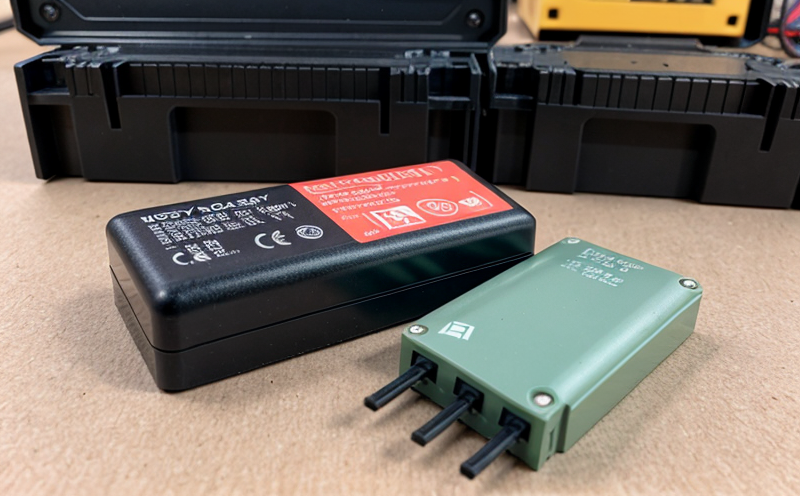IEC 63115 Stationary Lithium Battery Pack Performance Testing
The IEC 63115 standard is a crucial benchmark for ensuring the safety and performance of stationary lithium battery packs. This standard has been widely recognized in sectors such as renewable energy storage, backup power systems, and uninterruptible power supplies (UPS). It provides comprehensive guidelines to evaluate various aspects of battery performance, including electrical characteristics, thermal stability, mechanical integrity, and aging behavior.
Our laboratory specializes in conducting rigorous IEC 63115 testing for stationary lithium battery packs. The process begins with a thorough understanding of the specific requirements outlined by this standard. This includes ensuring that all test samples meet the specified nominal capacity and chemical composition. Prior to testing, it is essential to prepare the specimens correctly to avoid any discrepancies in results.
During the testing phase, we employ advanced equipment and methodologies designed to simulate real-world operating conditions accurately. These tests encompass a range of parameters such as charge-discharge cycles under different temperatures, over-temperature protection, short-circuit response, and endurance tests. Each parameter is critical for assessing the overall reliability and safety of the battery pack.
The data collected from these tests are meticulously analyzed using statistical methods to ensure consistency and accuracy. Compliance with IEC 63115 ensures that the product meets stringent international standards, thereby enhancing its marketability and trustworthiness among consumers. Our team provides detailed reports highlighting all test results along with recommendations for improvement if any non-compliance is observed.
In addition to meeting regulatory requirements, our testing services also support R&D efforts by offering insights into potential improvements in battery design or material selection. We collaborate closely with clients throughout the entire process—from initial consultation through final report delivery—to ensure that every aspect of their product development aligns with industry best practices.
By leveraging our expertise and state-of-the-art facilities, we aim to provide reliable, accurate, and timely testing services for IEC 63115 stationary lithium battery packs. Our commitment to quality has earned us a reputation as one of the leading laboratories in this field globally.
Scope and Methodology
The scope of our services includes conducting comprehensive testing according to IEC 63115, which covers stationary lithium battery packs used in various applications like renewable energy systems, UPS units, and other critical power supply devices. The methodology follows the prescribed procedures outlined in the standard for evaluating essential parameters such as electrical performance, thermal stability, mechanical strength, and longevity.
Electrical characteristics testing involves assessing voltage levels throughout multiple charge-discharge cycles while maintaining precise temperature control to mimic actual usage scenarios. Thermal stability tests examine how well batteries handle extreme temperatures without degrading performance or risking safety hazards. Mechanical integrity assessments focus on evaluating the structural robustness of battery modules against external forces that could occur during installation or operation.
Endurance testing simulates long-term continuous use conditions to determine the lifespan and reliability of the batteries over extended periods. Compliance with IEC 63115 ensures that all components are tested under realistic operational pressures, providing valuable feedback for manufacturers looking to enhance their products' longevity and efficiency.
Our laboratory uses sophisticated instrumentation calibrated according to international standards to ensure accurate measurements during each test run. This precision guarantees reliable data interpretation and confident decision-making regarding product quality and safety.
Quality and Reliability Assurance
At our core, we are dedicated to delivering high-quality testing services that meet or exceed industry expectations. To achieve this goal, we have implemented robust quality assurance processes throughout all stages of the testing procedure.
Firstly, rigorous specimen preparation ensures consistency across samples being tested. This includes precise calibration of equipment used in testing and adherence to strict protocols for sample handling and storage prior to evaluation. By maintaining uniformity among test subjects, we minimize variability that could otherwise skew results.
Secondly, our advanced instrumentation is regularly maintained by certified technicians who ensure it remains accurate and reliable throughout its operational life cycle. Regular calibration checks guarantee that all measurements align with international standards such as ISO 9001 for quality management systems or IEC 62384 for lithium-ion batteries.
Thirdly, our highly skilled team of professionals employs a systematic approach to data analysis and interpretation. Statistical methods are applied rigorously to identify trends, anomalies, and patterns within the collected datasets. This enables us to provide actionable insights that help clients optimize their products' performance while ensuring compliance with relevant regulations.
Finally, we maintain strict confidentiality regarding client information and proprietary data throughout the testing process. Our commitment to protecting intellectual property rights fosters a trusting relationship between ourselves and our valued customers.
International Acceptance and Recognition
The IEC 63115 standard has gained widespread acceptance across numerous countries worldwide due to its comprehensive coverage of stationary lithium battery packs' safety and performance aspects. Many nations recognize this standard as the gold standard for ensuring reliable operation in demanding environments.
For instance, China, a major player in renewable energy storage solutions, mandates adherence to IEC 63115 when certifying products intended for commercial deployment within its borders. Similarly, European Union directives require manufacturers exporting batteries into EU member states to comply with this standard.
In North America too, regulatory bodies like the U.S. Department of Energy (DOE) encourage the use of IEC 63115 during certification processes for large-scale energy storage systems. This support stems from recognizing its ability to promote safer and more efficient battery technologies across diverse applications.
The global adoption rate continues to grow as industries increasingly prioritize safety, sustainability, and performance when selecting stationary lithium batteries. By choosing our IEC 63115 testing services, clients can ensure their products meet these stringent international standards, thereby enhancing their competitiveness in the marketplace.





